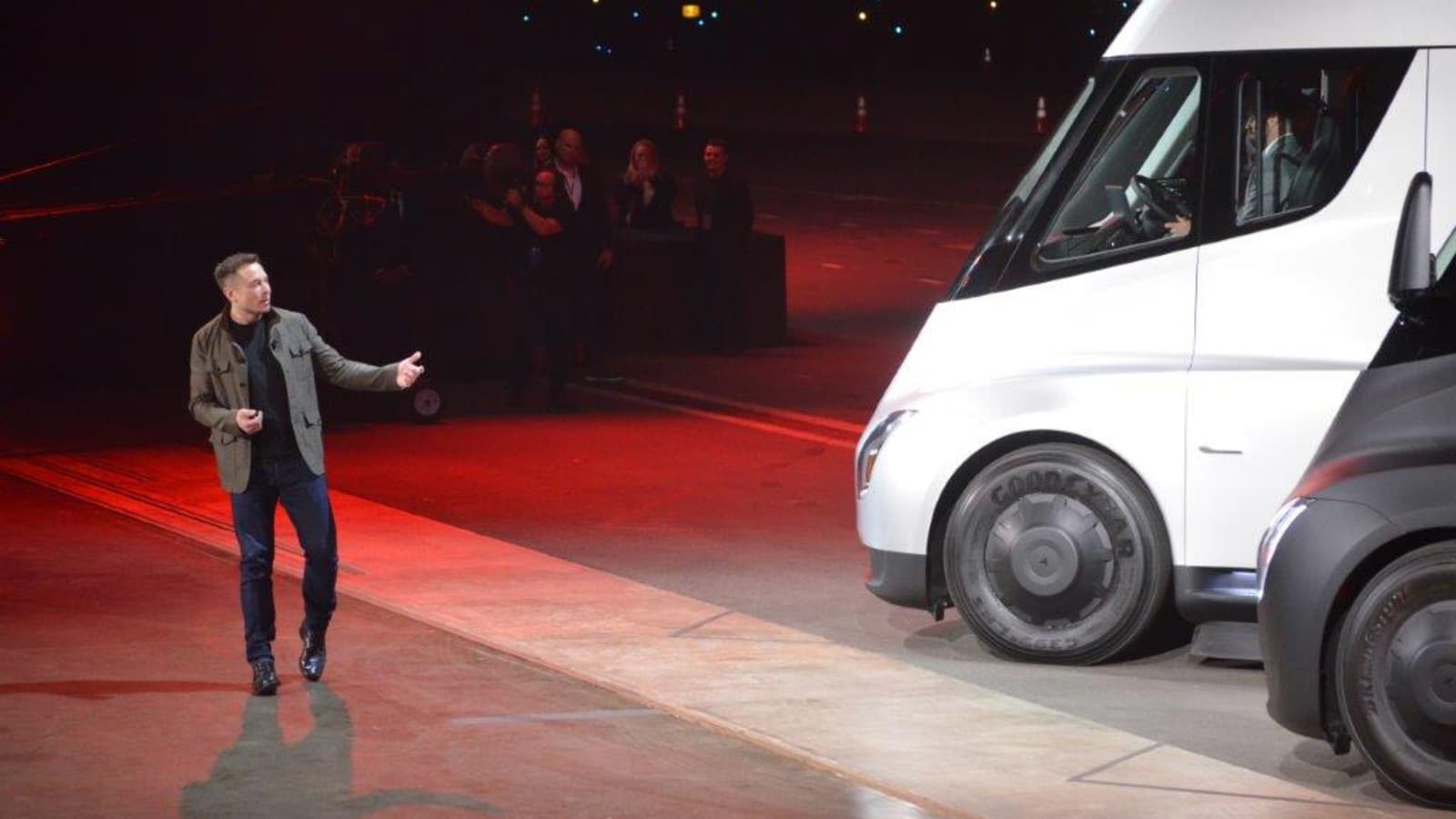Over the weekend, Tesla CEO responded to a question on Twitter that raised doubts about the EV giants initial timeline for production and deliveries of the Tesla Semi.
Last summer, an email from Elon Musk to Tesla employees surfaced where the CEO stated that “it’s time to bring Tesla Semi to volume production.” However, the email did not disclose any sort of updated the timeline.
When Tesla unveiled its plan for an electric semi-truck in 2017, it was originally expected to hit the market in 2019 but was quickly pushed to enter low “volume production” in late 2020.
As we all know, 2020 came and went and there was no Tesla Semi production in sight. Not surprising considering the tumultuous year that was 2020, which caused several projects, from multiple companies to see delays. Tesla said earlier this year that it is now aiming enter production by the end of 2021 with some customer deliveries by the end of the year as well.
With these statements and the recent sightings including a video from the automaker of the electric semi driving laps on a test track, we assumed the Tesla Semi would hit production lines any day now.
A recent announcement from PepsiCo solidified this assumption last week, when they said they are expecting 15 electric trucks from Tesla by the end of the year.
All of these indicators point towards production of the electric semi-truck in the very near future. However, Elon Musk smashed any dreams we’ve had about Tesla Semi production this year in one simple tweet:
Earlier this year Musk was noted saying the production of the Tesla Semi is dependent on Tesla’s new 4680 battery cell. A tabless battery cell design that was unveiled during Tesla’s ‘Battery Day’ event last September. According to the CEO: “If we were to make the Semi like right now, which we could easily go into production with the Semi, but we would not have enough cells.”
Now the CEO has given us a little hope as he is clarifying what he meant by his recent Twitter response saying (via Electrek): “Demand is no problem, but near-term cell supply makes it hard to scale Semi. This limitation will be less onerous next year.”
With this, the chances of some very low-volume production of the Tesla Semi this year is much greater. Keep in mind that just one Tesla Semi requires at least six times as many battery cells as a Model Y electric SUV. With the cell constraint Tesla is currently facing, it will be quite a feat for the EV giant to produce the 15 trucks PepsiCo is expecting by the end of the year with the lack in battery cell supply.

